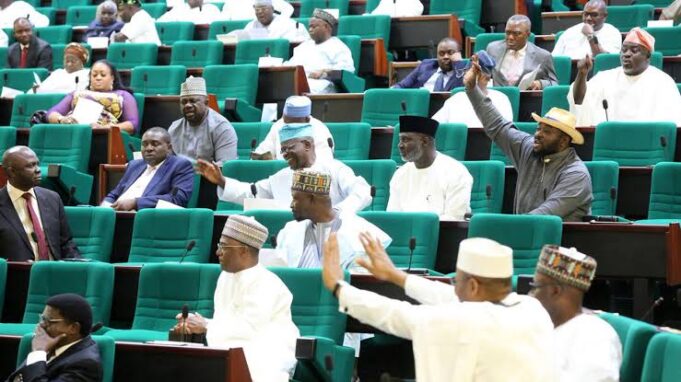The House of Representatives’ joint Committees on Finance and National Planning have raised concerns about the Nigeria Upstream Petroleum Regulatory Commission’s (NUPRC) annual expenditure of over N120 billion on personnel and overhead costs.
The Committees are seeking further clarification on the agency’s spending, which they consider excessive.
During an interactive session on the 2025-2027 Medium Term Expenditure Framework (MTEF) and Fiscal Strategy Paper (FSP), the Chairman of the House Committee on Finance, James Abiodun Faleke (APC, Lagos), demanded detailed information from NUPRC on oil production, crude sales, and other operations within the upstream petroleum sector.
Faleke questioned how the NUPRC could justify spending N88 billion on personnel, asking how many staff the organization employed.
He compared this to the National Assembly’s budget, noting that the total cost for all parliamentary activities is just N150 billion annually.
Faleke further expressed frustration over the 4% cost of revenue collection, arguing that the figure was disproportionately high given the agency’s spending levels.
“You are spending N88 billion on salaries and over N40 billion on overhead,” he remarked, demanding a comprehensive report on NUPRC’s revenues, expenditures, and operations, particularly those related to exploration activities in the country’s Frontier Basins.
Babajide Oluwole Fasina, NUPRC’s Executive Commissioner for Economic Regulation and Strategic Planning, who represented CEO Gbenga Olu Komolafe, had earlier presented the Commission’s revenue and expenditure figures.
He explained that NUPRC generates its revenue through oil and gas royalties, gas penalties, fines, levies, signature bonuses, and the renewal of licenses.
Fasina also disclosed that the 4% cost of revenue collection amounted to N114.84 billion in 2023, a slight increase over the previous year.
Despite the explanation, the committee remained unsatisfied with the figures and demanded further records, including detailed information on oil production and crude sales.
They specifically asked for data on the daily oil production per well, as well as weekly or daily shipment details and the corresponding revenue.
The committee also inquired about NUPRC’s Frontier Exploration activities and how these initiatives align with the agency’s financial reports.
Faleke instructed the agency to return with detailed records on the Frontier activities, including expenses and oil sales, by the scheduled meeting on the 18th of the month.
Fasina also acknowledged that personnel costs, which accounted for 70.19% of NUPRC’s total expenditure, had increased significantly by N11.46 billion, or 10.83%, in 2023.
He also noted a decrease in the Commission’s non-tax remittance, which fell from N3.67 billion in 2022 to N1.77 billion in 2023.
In addition to addressing NUPRC’s concerns, the committee directed the Nigeria Bulk Electricity Trading (NBET) agency to clarify discrepancies in invoicing between Generation Companies (Gencos) and Distribution Companies (DisCos).
NBET had explained that discrepancies arose due to timing differences in invoicing, which led to the inclusion of additional components like interest and True-Up charges in GenCo invoices.
The inclusion of off-takers, such as Ajaokuta Steel Company, further complicated the invoicing process.

















